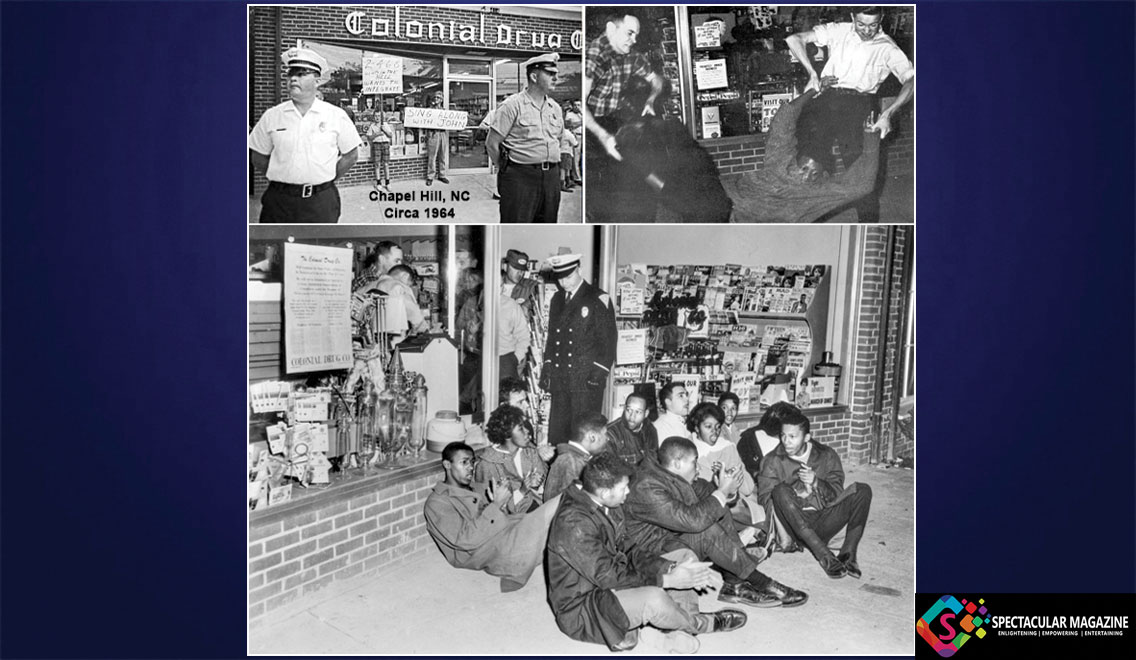Opening Our Future: A Special Evening Honoring Chapel Hill’s Civil Rights History & The Chapel Hill Nine

Chapel Hill, NC – In 2017, Chapel Hill Mayor Pam Hemminger created the Historic Civil Rights Commemorations Task Force. They were asked to create a timeline that identifies people, places, and events that should be remembered for their part in the struggle for civil rights in Chapel Hill.

On Friday November 30th, the Town of Chapel Hill will launch the “Opening Our Future” timeline and traveling exhibit, unveil the accompanying Chapel Hill Civil Rights Trading Cards and honor the Chapel Hill Nine. To be held in the Chapel Hill Public Library (100 Library Dr.) at 7:00 pm, this public program will also feature remarks from members of the Task Force.
The Task Force has spent the last year collecting and sharing stories, starting with the spark that ignited the local movement – the Chapel Hill Nine, the group of Lincoln High School students’ sit-in at a local drugstore.
On February 28, 1960 nine black Chapel Hill teenagers, not yet old enough to vote at the time, entered into the Colonial Drugstore on Franklin Street, sat down at a table, and refused to leave when they were denied service because of the color of their skin.

Now, nearly 60 years later, the Historic Civil Rights Commemorations Task Force made recommendations for a commemorative marker to remember that day, which saw the first sit-in of Chapel Hill’s civil rights’ movement and sparked a decade of protests against segregation in Chapel Hill, according to local historians.
In early November members of that task force returned with a proposal outlining possible details for a marker in front of 450 West Franklin Street, where the Colonial Drug store use to stand. The West End Wine Bar is currently in that property. The task force consulted with the owners and management, who approved of the design plans laid out for the marker.
The town council voted unanimously to accept the recommendations of the task force, and forward the plans to the town manager for implementation.
Danita Mason-Hogans, daughter of Chapel Hill Nine member Dave Mason and member of the task force, said the marker and continued opportunities for learning were important to the Chapel Hill’s history.


“I think it’s good for Chapel Hill, and I hope it is inspiring to all the young people who sit in their class, not only to understand that they did come from somewhere, but there is so much more of the story that has to be told.”
The recommendation lays out a rough timeline for construction, aiming for completion by February 2020, the 60th anniversary of the actions of a group of Chapel Hill teenagers in the early days of the Civil Rights’ Era.
Their goal, according to special projects coordinator Molly Luby, was straightforward.
“The charge to the group was to create a timeline that identifies people, places and events significant in the town’s the civil rights struggle,” said Luby, “so that they may be commemorated in historical context by the town. Throughout this process, we felt a sense of urgency. Of the nine, only four members are still living. The task force members hope to honor these men and their compatriots for their actions within their lifetimes.”
“The collection and preservation of history is a social justice issue,” said Mason-Hogans. “Who tells the history and from whose perspective that story is told is at least as important as the history itself because of the ability of knowing that history can inspire future generations.”
(SOURCE: https://chapelboro.com/)

